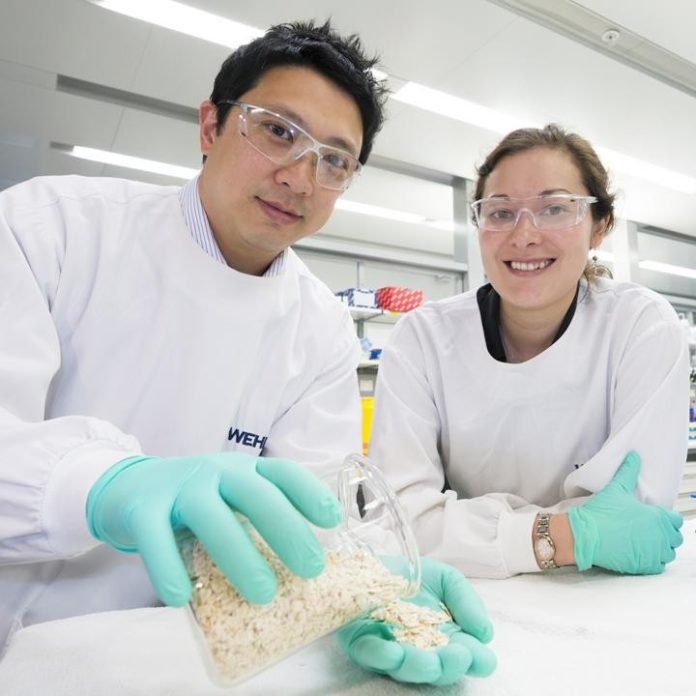
Melbourne researchers have identified why some people with celiac disease show an immune response after eating oats.
The researchers have identified the key components in oats that trigger an immune response in some people with celiac disease. The findings may lead to better tests for oat toxicity, and have implications for new treatments being developed for celiac disease.
As many as one in 60 women and one in 80 men in Australia have celiac disease, an autoimmune condition caused by consuming gluten, a protein found in wheat, rye and barley. The abnormal immune response to gluten damages the small intestine and is associated with gastrointestinal symptoms including vomiting and diarrhea, lethargy, and an increased risk of osteoporosis and cancer. People with celiac disease must adhere to a lifelong gluten free diet that excludes wheat, barley and rye.
The question of whether oats are toxic for people with celiac disease is controversial, but because oats contain proteins, called avenins, that are similar to gluten, oats are excluded from the gluten-free diet in Australia.
Researchers from the Walter and Eliza Hall Institute, Monash University and US biotechnology company ImmusanT, led the 10-year study, published this month in the Journal of Autoimmunity. They revealed that oat consumption triggered an immune response in eight per cent of the 73 participants with celiac disease.
Walter and Eliza Hall Institute researcher Dr Melinda Hardy said the research was the first of its kind to comprehensively profile immune responses to oats in people with celiac disease. “The significance of previous studies performed in test tubes was unclear,” she said. “By studying people with celiac disease who had eaten oats, we were able to undertake a detailed profile of the resultant immune response in their blood stream. Our study was able to establish the parts of oat avenins that cause an immune response in people with celiac disease.”
Dr Jason Tye-Din, head of celiac research at the Walter and Eliza Hall Institute and a gastroenterologist at The Royal Melbourne Hospital, said the study showed oats were well tolerated by most people with celiac disease, but in a proportion of people with celiac disease oat consumption could trigger immune responses similar to those caused by eating barley.
“This study provides specific detail on the parts of oats stimulating immune responses, and highlights the relevance of grains other than wheat in celiac disease,” Dr Tye-Din said. “This is a vital piece of the puzzle that informs the development of targeted tests for oat toxicity and the design of new treatments for people with celiac disease.”
President of celiac Australia, Mr Tom McLeod, said the good health of people with celiac disease depended on strict removal of dietary gluten. “celiac disease is not a dietary fad, but a serious health condition,” he said. “This study adds to our understanding of oats in celiac disease, and sets the scene for definitive evaluation on what can be safely consumed by people with celiac disease.”
Story Source:
The above story is based on materials provided by Walter and Eliza Hall Institute. Note: Materials may be edited for content and length.
Journal Reference:
- Melinda Y. Hardy, Jason A. Tye-Din, Jessica A. Stewart, Frederike Schmitz, Nadine L. Dudek, Iresha Hanchapola, Anthony W. Purcell, Robert P. Anderson. Ingestion of oats and barley in patients with celiac disease mobilizes cross-reactive T cells activated by avenin peptides and immuno-dominant hordein peptides. Journal of Autoimmunity, 2014; DOI: 10.1016/j.jaut.2014.10.003
